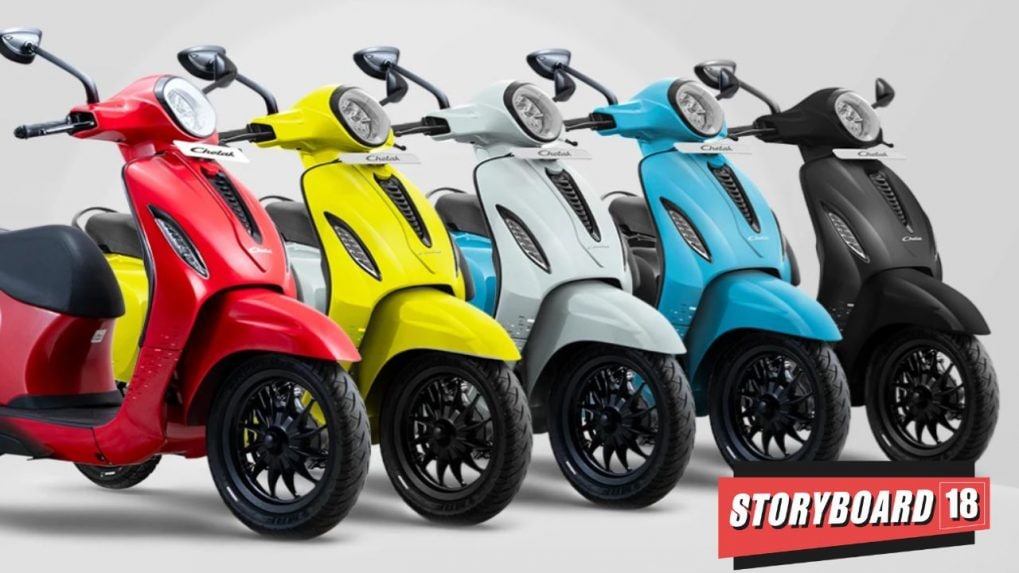Bajaj Auto’s domestic 2-wheeler sales fall 12% in August; exports jump 25%
Compared to July, Bajaj Auto’s two-wheeler sales declined 37.8% month-on-month. The company sold 96,247 units of two-wheelers in July 2025
ADVERTISEMENT
Bajaj Auto Limited reported a 12% decline in domestic two-wheeler sales in August this year. According to a stock exchange filing, the manufacturer of the Chetak scooter sold 1,84,109 units of two-wheelers in the domestic market in August 2025, compared to 2,08,621 units in the same period a year ago.
Compared to July, the company’s two-wheeler sales declined 37.8% month-on-month. Bajaj Auto sold 96,247 units of two-wheelers in July 2025.
However, two-wheeler exports in August 2025 rose 25% to 1,57,778 units, against 1,26,557 units in August 2024.
Bajaj Auto to enter e-rickshaw market with new brand ‘Riki’ from August 10
Bajaj Auto's commercial vehicle sales also saw an uptick in August 2025, rising 7% to 48,289 units. The company’s commercial vehicle exports jumped 58% to 27,440 units in August 2025, compared to 17,420 units in the same month of 2024.
In the past five months (April to August), Bajaj Auto's domestic vehicle sales dropped 11% to 8,52,732 units, compared to 9,59,965 units in the same period of 2024. Sales of commercial vehicles during this period remained flat year-on-year at 1,97,617 units.
Overall sales, comprising two-wheelers and commercial vehicles, declined 9% between April and August 2025 to 10,50,349 units, while exports increased 21% year-on-year to 8,44,504 units.
Bajaj Auto Q1 profit rises 13.8% to Rs 2,210 crore; EVs contribute over 20% to domestic sales
Separately, is set to take a major leap in its electric vehicle (EV) journey by bringing its iconic Pulsar and Boxer brands into the electric motorcycle segment. According to Managing Director Rajiv Bajaj, “Bajaj Auto is working with the Boxer brand and the Pulsar brand to develop a commuter electric motorcycle and a sports electric motorcycle".
Bajaj Auto to electrify Pulsar and Boxer brands, eyes expansion into EV motorcycle segment
Bajaj Auto already holds leadership positions in the electric scooter and three-wheeler markets with the Chetak and GoGo models. The foray into electric motorcycles is seen as a natural extension, aiming to fill a critical gap in India’s evolving EV ecosystem.
Beyond motorcycles, the company is also planning to expand its electric scooter lineup. A new scooter platform, originally scheduled for launch earlier, has now been deferred to Q3 or Q4 of FY26 due to global supply chain constraints, particularly the shortage of rare earth magnets essential for EV manufacturing.


